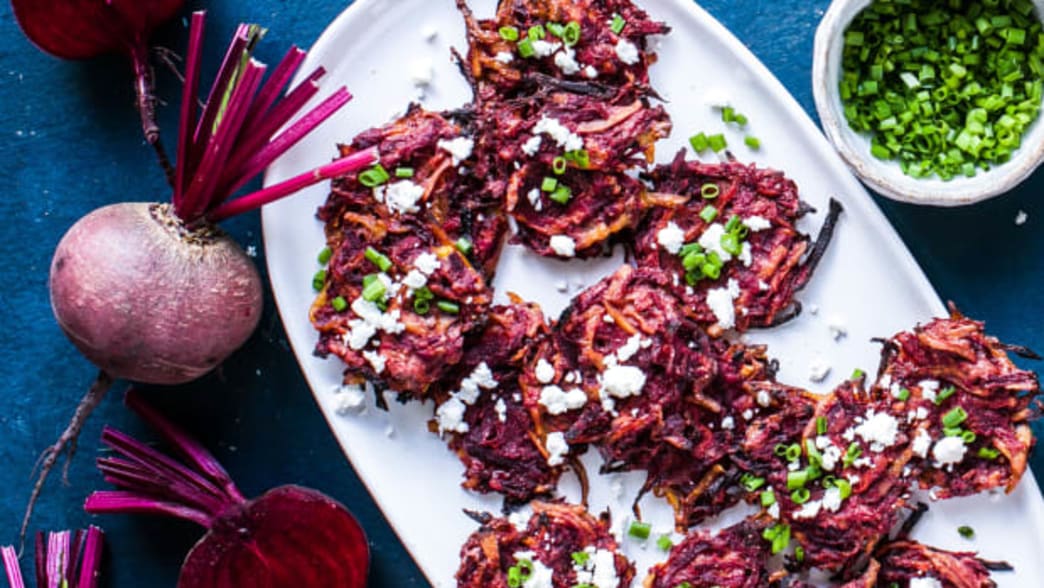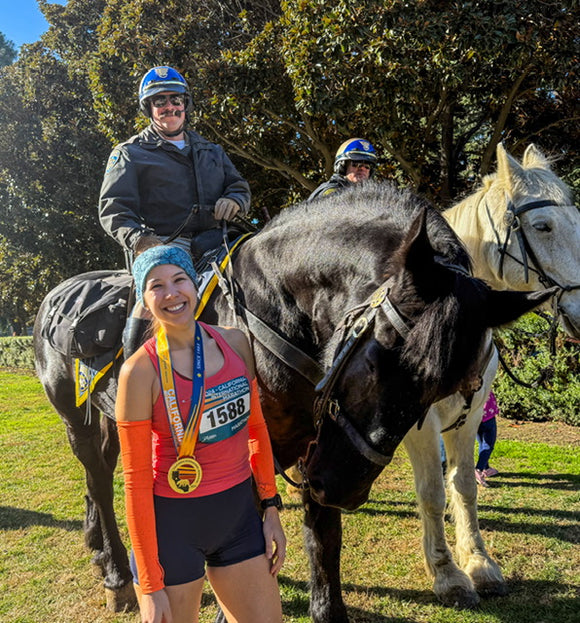Maximize energy, strength, endurance and fat loss with these 5 performance foods.
Avid exerciser or weekend warrior? Focus on foods that fuel your body, repair damage, reduce inflammation, improve strength and build muscle. Turn your frame into a lean, mean, moving machine with these super fitness foods.
Beets are high in naturally occurring nitrates, which are converted by the body to nitric oxide, a compound that dilates blood vessels, improves blood flow and enhances athletic performance. In one study, athletes who drank beet juice showed a 38% increase in blood flow to muscles, especially fast-twitch muscles, which impact bursts of speed and strength. In another study, runners who ate cooked beets ran 5% faster. And in a review of 23 studies, researchers concluded that drinking beet juice can improve cardiorespiratory endurance (the ability of the circulatory and respiratory systems to supply fuel during sustained physical activity and to eliminate compounds that lead to fatigue) as well as enhance exercise efficiency, improve performance and increase time to exhaustion.
Recipe tips:
- Wrap whole beets in foil and roast until tender.
-
Add cooked and cooled beets to a smoothie with bananas, blueberries and Greek yogurt.
Sweet potatoes are high in carbs, critical for energy before high-intensity exercise. Unlike other sources of carbohydrates, such as pasta or bagels, sweet potatoes are grain-free, gluten-free and rich in potassium, an electrolyte that’s depleted during high-intensity exercise. Low potassium levels impact muscle contractions, energy and endurance, so it’s important to replenish them with natural sources. Sweet potatoes are also high in beta-carotene, a powerful antioxidant that reduces inflammation. Drizzle sweet potatoes with olive oil to add more anti-inflammatory compounds that help reduce pain and swelling.
Recipe tips:
- Mash cooked sweet potatoes with almond milk, cinnamon, chopped almonds and raisins for a grain-free breakfast bowl.
- Make “lasagna” with sweet potatoes thinly sliced lengthwise in place of noodles.
Hummus is loaded with resistant starch, a slow-burning carbohydrate that minimizes and controls spikes in blood glucose and insulin before exercise. Resistant starches also provide fuel for beneficial bacteria and improve gut microbiota, which play an important role in the production, storage and expenditure of energy. Hummus is high in protein and iron, critical to optimal athletic performance via its role in energy metabolism and transport of oxygen to muscles. And studies show that legumes help you feel full longer, promoting fat loss and lean muscle mass.
Recipe tips:
- Spread hummus on whole-wheat tortillas and layer with avocado, spinach, sliced onions and salsa for an on-the-go breakfast wrap.
- Layer hummus, sliced olives, red onions, yellow peppers and goat cheese on pizza crust and bake until bubbly.
Almond butter is a great post-workout snack that’s rich in protein and other important nutrients for athletes. Almonds are high in magnesium, critical for proper function of muscles and nerves; vitamin E to prevent exercise-induced oxidative damage; and other nutrients that help the body use oxygen more effectively. In one study, athletes who ate whole almonds before training improved their cycling distance and endurance and had higher blood levels of antioxidants.
Recipe tips:
- Whisk almond butter with sesame oil, rice vinegar and minced ginger for a creamy Asian vinaigrette.
- Make hummus with white beans, almond butter, olive oil, lemon juice and minced garlic.
Pomegranates are loaded with antioxidants, including ellagitannins shown to reduce exercise-induced inflammation. In one study, athletes who took an ellagitannin-rich pomegranate extract had less muscle soreness and significantly higher strength recovery after resistance training. In another study, subjects who drank pomegranate juice for 15 days noted reduced muscle soreness and weakness in their elbow flexors after resistance training compared to a placebo. It’s even better if you combine pomegranate juice with apple juice and/or green tea — the quercetin in apples and epigallocatechin 3-gallate (EGCG) in green tea have been shown to reduce inflammation in cyclists.
Recipe tips:
- Toss pomegranate seeds with sliced kiwi, tangerine segments, minced basil and lime juice.
- Mix concentrated pomegranate juice and pomegranate seeds with coconut milk and freeze in an ice-cream maker.
Written by Lisa Turner for Clean Eating Magazine and legally licensed through the Matcha publisher network. Please direct all licensing questions to legal@getmatcha.com.
Featured image provided by Clean Eating Magazine



